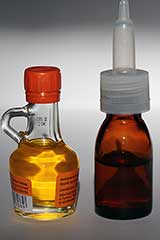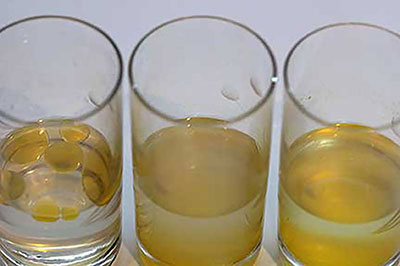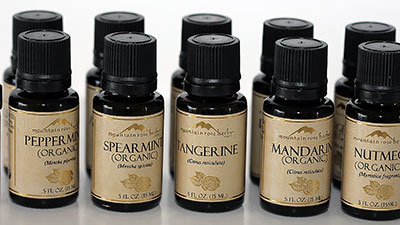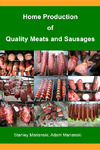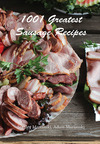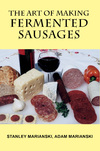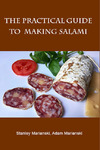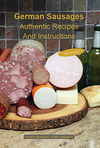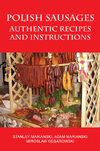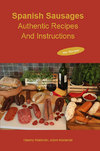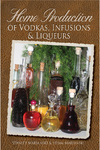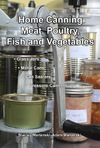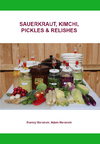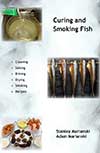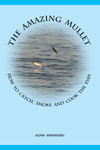Meats and Sausages
Essential Oils
Natural essential oils can be added to vodkas and liqueurs as a primary or supplemental flavor. They have a very strong taste and flavor and are usually added at 1-2 ml (0.01-0.02%) per 10 liter of product. For example, 1 ml of orange oil is enough to make 10 liters of orange flavored vodka. Sometimes we may use oil to enhance the flavor of the infusion and only 0.1 ml is needed for 10 liters of liquid. If only one liter of infusion is made, this number becomes 10 times smaller. Wonderful orange vodkas can be made by combining orange skin infusion with orange essential oil.
Most essential oils come in a 10-30 ml bottle with a dropper, but administering such small amounts of oil is still difficult. An easy solution is to mix oil with 10 times more alcohol. For example 1 ml of oil is measured with a pipette and placed in a measuring cylinder. Next 9 ml of pure alcohol is added creating 10 ml of oil in the alcohol solution. Now, if we need to add 0.1 ml of oil into our 1 liter vodka, the task is much easier as we need to administer 1 ml of the solution. An even easier solution can be made by mixing 1 ml of oil with 99 ml of 95% alcohol. What we get is a 100 ml solution with 1 ml of oil inside. To administer 0.1 ml of oil, we need to remove 10 ml of the solution and that becomes quite easy. There are hundreds of essential oils which are used in therapeutic aromatherapy applications and many of them are suitable for making alcoholic spirits. Keep in mind that stronger alcohol yields better oil dissolution. Oils will dissolve well in 96% alcohol but below 55% oil, dissolution becomes negligible. During the composition of a new alcoholic spirit the essential oils must be added to alcohol first, dissolved and only then juices, syrup and water may be introduced. Essential oils should be kept in dark bottles in cool areas and used within 6 months. They lose their quality when exposed to light, air and warm temperatures.
Finding essential oil that is suitable for making beverages can be confusing. After doing much research we have finally discovered Mountain Rose Herbs www.mountainroseherbs.com. This company offers not only great essential oils but an impressive collection of herbs as well.
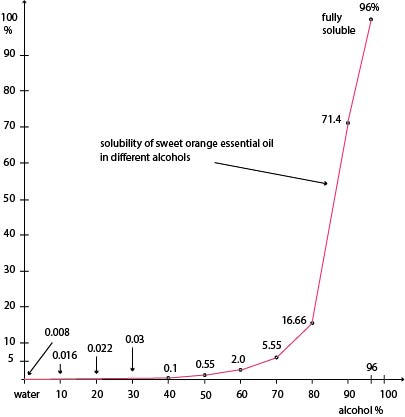
It can be seen in the graph that the ability of oil to dissolve in alcohol decreases drastically when the strength of alcohol drops below 80%.
If you decide to experiment with essential oils follow these steps:
- Don't add essential oil directly into drinks.
- Add a drop of oil to the strongest alcohol you are going to use.
- Mix well together.
- Pour the oil/alcohol solution into the spirit you are making and stir well. The solution should remain clear.
Adding 1 ml of good quality essential oil directly to 40% alcohol (vodka) does not create any cloudiness. Cloudiness starts to appear at about 2 ml/l. Applying more than 2 ml/l will make the drink taste unpleasant and cloudy. Stir the solution by shaking the bottle vigorously.
Essential oils are liquids extracted from highly fragrant plants and flowers. They have been around for thousands of years for a variety of uses including medicinal and cooking.
The ones that are of interest to us for making alcohol type beverages are produced by:
- Cold pressing. This method is used to extract oils from lemon and orange skins. The oils are yellow.
- Steam distillation. Water is boiled to create steam, which then travels through a bunch of herbs. The steam breaks the structure of herbs, extracts oil, and then flows into the condenser. There, it becomes a liquid solution of water and oil and goes into a separator. The oil being lighter than water is physically separated and the water is discarded. The oils are clear.
Essential oils work well for making dry vodkas. Adding 1 ml of oil to one liter of 40% alcohol delivers the necessary flavor and does not create cloudiness. Adding more oil can be problematic and will start to impart cloudiness. The cloudiness will generally clear in time but will reappear when the bottle is shaken. Using oils is a perfect solution for commercial producers who have huge supplies of alcohol. All they need to do is to dilute alcohol to 40%, add 1 ml of essential oil and flavored vodka is produced. As the steam essential oils are clear approved food coloring is added. Orange oil carries a yellow color as it has been made by cold pressing and not by steam distillation, however, it is added in a such a diminutive quantity that the resulting vodka remains clear. A yellow color can be obtained by adding saffron or an approved food coloring. Peppermint oil will impart peppermint but the vodka will be clear. As people associate mint with a green color, green food grade coloring is added.
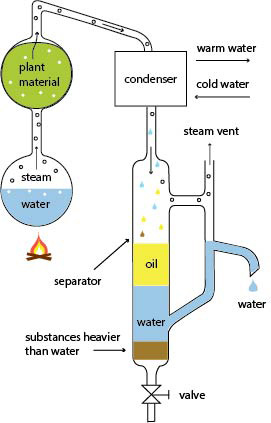
Note
Mountain Rose Herbs www.mountainroseherbs.com distributes wonderful extracts and essential oils which can be used for making vodkas.

